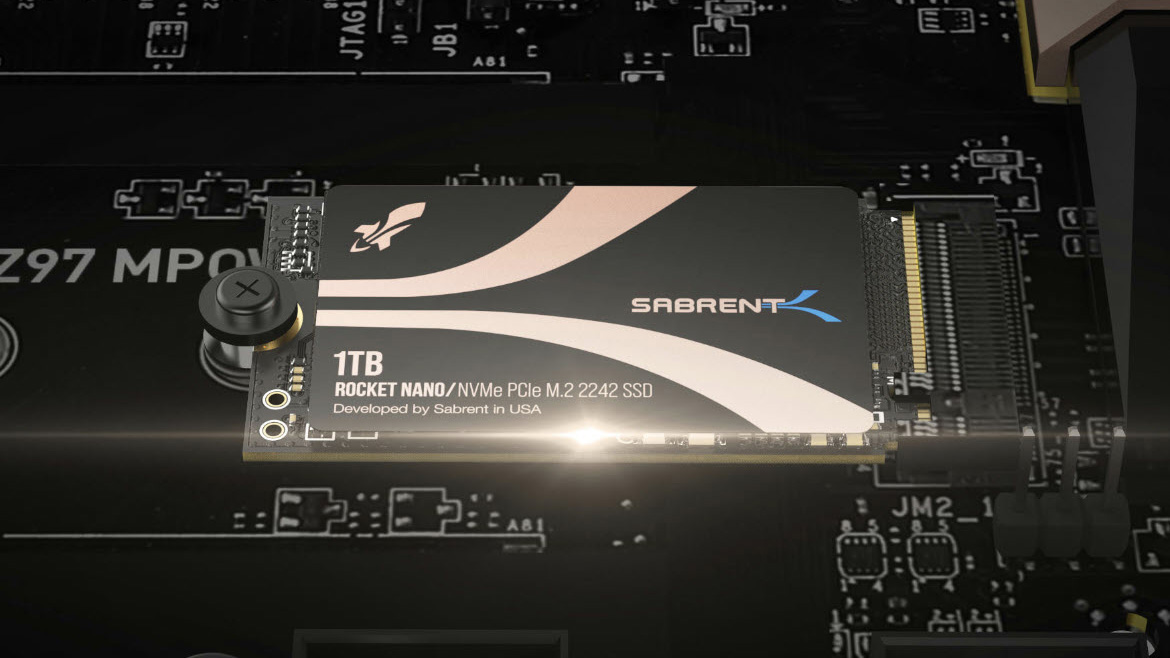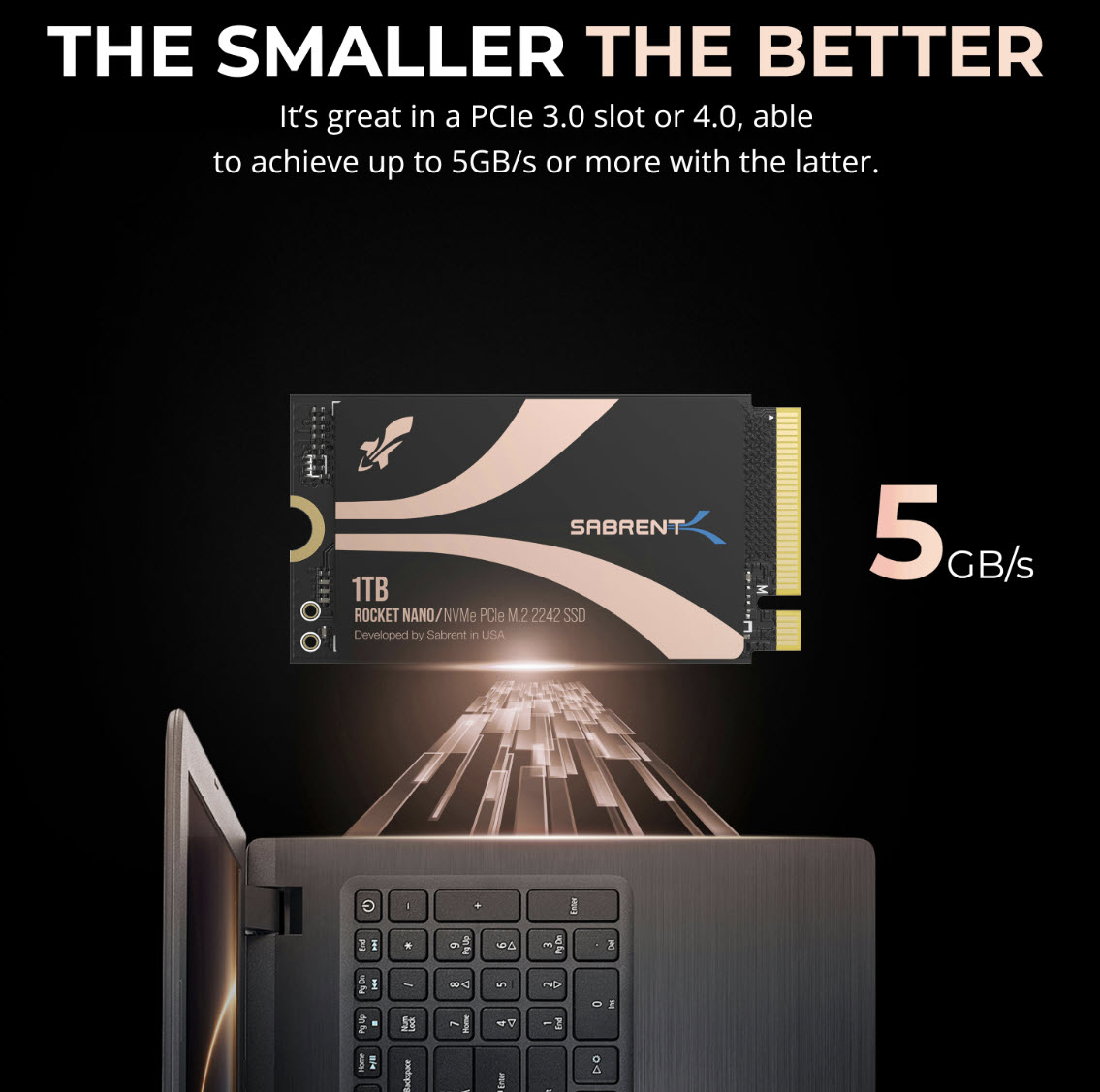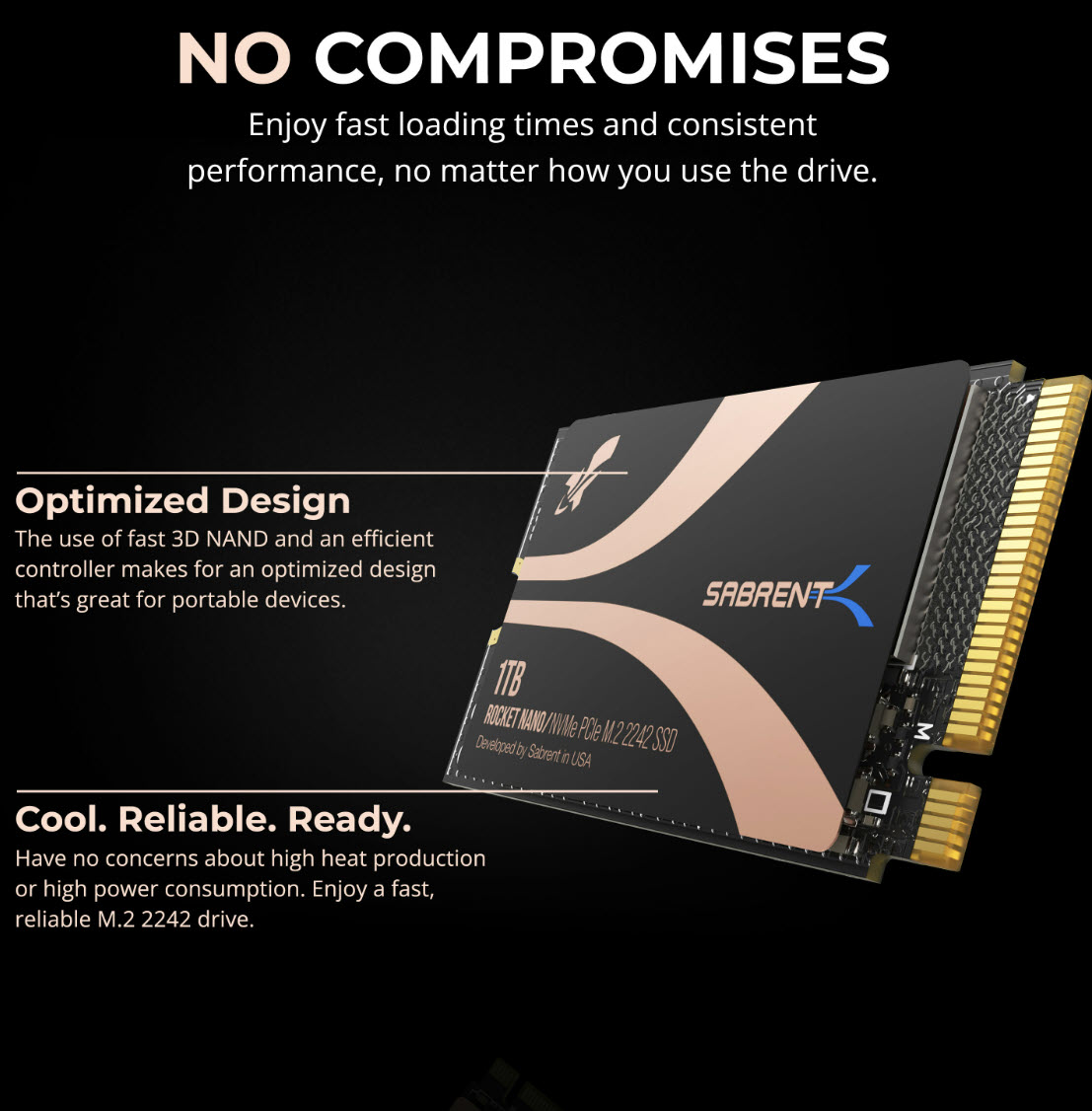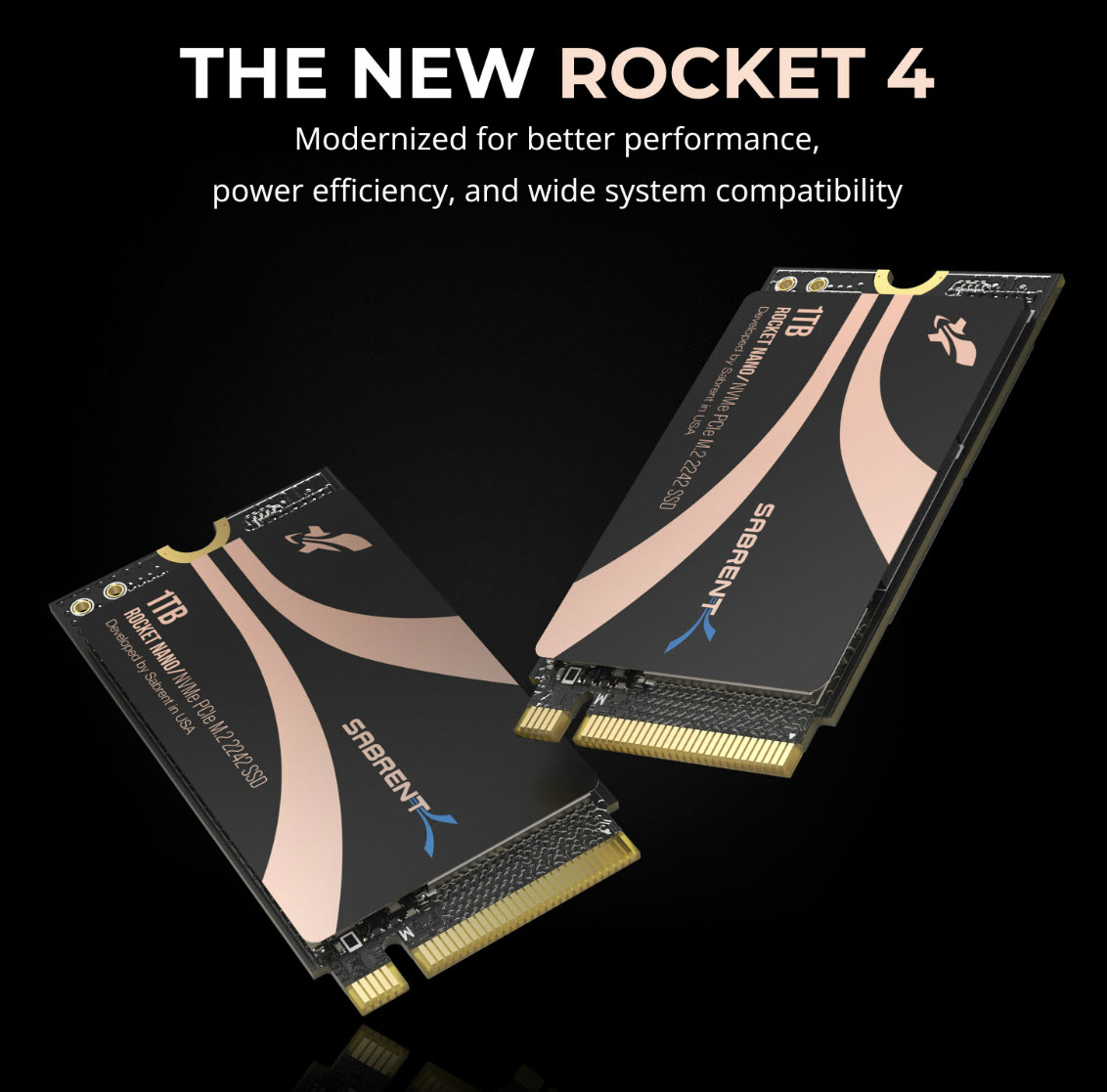
Sabrent has unveiled its new Rocket Nano 2242 Gen 4 NVMe, which, as the name suggests, is an M.2 2242 form factor SSD designed for devices like the Lenovo Legion Go as well as NUCs. It offers speeds of up to 5 GB/s and uses the new Phison E27T controller that powers some of the best SSDs. You can buy the Rocket Nano 2242 Gen 4 for $99.99.
The M.2 2242 form factory isn't as common as some other sizes, now that the Steam Deck has popularized M.2 2230 SSDs. It's the next step up in size, and most importantly it has enough real estate to support two NAND packages — double what you can get on 2230 drives. It's also growing in popularity, thanks to handhelds like the Lenovo Legion Go that opted for a slightly larger SSD form factor.
The 40% larger form factor should allow for 2TB and even 4TB single-sided drives, though the Nano 2242 Gen 4 currently only comes in a 1TB capacity. We suspect that Sabrent will eventually offer at least a 2TB model, and hopefully even 4TB at some point — game install sizes aren't getting any smaller!



Sabrent didn't share much in the way of details, but we know the Nano 2242 Gen 4 uses the Phison E27T controller, presumably with Kioxia's BiCS6 162-layer TLC NAND. That's the same configuration that we've seen in other E27T SSDs so far, including the Corsair MP600 Elite, Sabrent Rocket 4, and Inland TN470 — just in a smaller form factor. The E27T features improved performance compared to the older E21T from Phison, and it's a DRAM-less design that still delivers good overall performance.
Based on the 5GB/s rating, the new Rocket Nano 2242 should come within striking distance of the WD Black SN770M (2230), currently our reigning performance champion when it comes to small form factor M.2 SSDs. We hope to get some 2242 drives in for testing in the coming days, including the Nano, to get a better view of how the various models stack up. There aren't very many such drives right now, but that number may increase in the coming months — and a lot of the existing models are now going out of stock.
The main selling point of the new Rocket Nano is its PCIe 4.0 compatibility, a first for Sabrent as far as 2242 drives go. As such, it should be much quicker than the outgoing 2.5GB/s Rocket Nano 2242 NVMe, particularly in applications that can take advantage of the additional bandwidth. It will likely also offer improvements in power efficiency, temperatures, and capacity — much of the NAND used in older 2242 (and other) SSDs is no longer being manufactured.
We expect the Nano 2242 Gen 4 to deliver good overall performance, based on what we've seen from the Phison E27T elsewhere. There's no DRAM, but modern controllers and NAND have improved to the point where that's no longer as much of a problem as in the past. Maxio MAP1602 drives also perform quite well and don't have DRAM.
We certainly look forward to higher capacity variants of the drive. The main advantage the 2242 form factor holds over 2230 drives is that it can fit two NAND packages on the PCB, along with the controller. Given we've already seen single-sided 2TB TLC 2230 drives, it should be trivial to make a 2TB 2242 drive, and 4TB would also be possible. Whether there's sufficient demand for such designs remains to be seen, but we'd love to see 4TB TLC rather than 4TB QLC (hint to the manufacturers out there).
We're working to get the Rocket Nano 2242 Gen 4 into our labs for testing. We also want to check out other 2242 drives, both existing and new models, so if you're an SSD manufacturer with such a drive, drop us a line.







